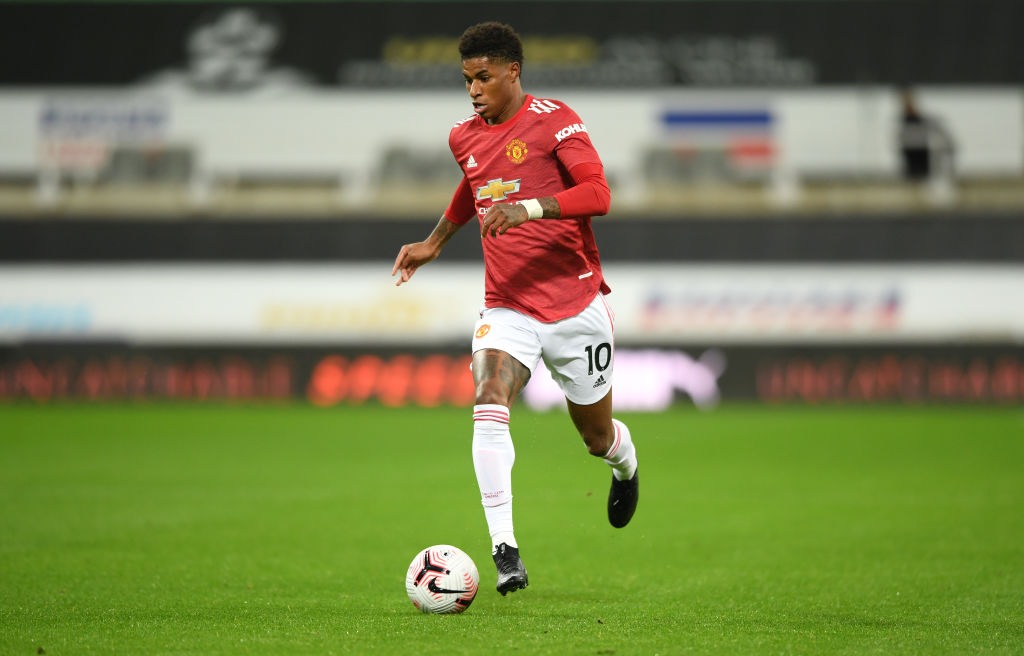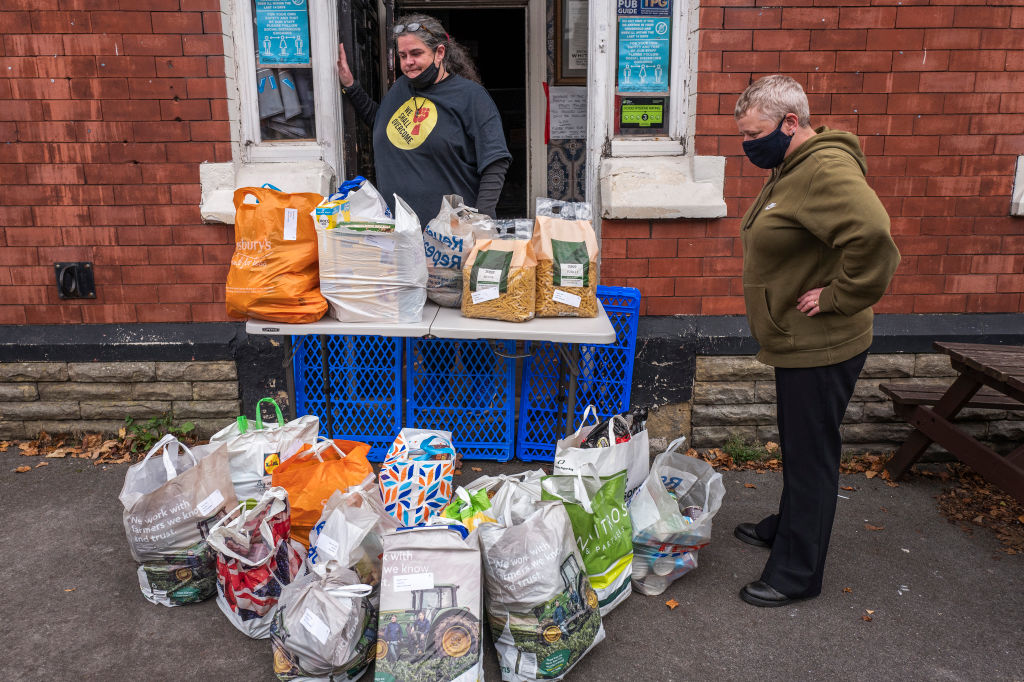
On Wednesday night, U.K. lawmakers voted against a motion that would have extended free school meals to children over school vacations, helping to offset a growing hunger crisis in the country that has left as many as a fifth of children in households regularly beset by hunger.
The vote was a disappointment for Marcus Rashford, one of England’s brightest young soccer stars, who plays for Manchester United and the national team. Following his successful campaign that forced the government to feed vulnerable school children over the summer vacation amid the economic disruption caused by COVID-19, Rashford had written a petition hoping to extend those subsidized meals over future school vacations, too. Instead, the government of Prime Minister Boris Johnson ordered its lawmakers to vote down the change.
“This is not politics, this is humanity,” Rashford wrote in a statement on Wednesday night. “These children matter. These children are the future of this country. They are not just another statistic. And for as long as they don’t have a voice, they will have mine.”
Job-losses caused by the pandemic have exacerbated an already stark hunger problem in highly unequal Britain, where 22% of people and 30% of children live in poverty despite it being the sixth-richest country in the world by GDP. Before the pandemic struck, 10% of children in the U.K. were living in households affected by “severe food insecurity,” which the Food Foundation defines as poverty that results in hunger. Now, the number may be as high as 20% as the pandemic puts strains on family incomes, according to the Food Foundation.
And with a second wave of COVID-19 infections predicted to crest in the winter, at the same time as the government will pare down the generosity of its job support scheme in November, the hunger problem is likely to get worse just in time for the Christmas holidays, when most students in the U.K. get two weeks off school.
But with a weeklong mid-term vacation set to begin for students on Monday, Rashford is taking the urgent matters into his own hands. He has turned his Twitter account—with 3.5 million followers —into a public directory for food banks, sharing addresses and information about where children can find the food denied them by the government.
Rashford’s campaign
As a child growing up in Greater Manchester, Rashford suffered from food insecurity. “I know what it feels like to be hungry,” he wrote in June, during his campaign to force the government to provide meals for vulnerable students over the summer vacation. “I’m well aware that at times my friends only invited me to eat at their houses for their parents’ reassurance that I was eating that evening.”
Initially the government resisted his requests, but on June 16 it backtracked after the public rallied in support of Rashford’s campaign, allowing 1.3 million children to claim free school meal vouchers over the six-week period.

On Oct. 10, Queen Elizabeth II rewarded Rashford with an MBE “for services to vulnerable children in the U.K. during COVID-19.”
Three days later, Rashford started his petition for the week-long vacation set to begin on Monday, calling on the government to to extend free school meals during future school vacations, and expand the eligibility criteria so that more students in poverty can access them. As of Friday, the petition has more than 500,000 signatures.
The U.K.’s child hunger crisis
Since the end of the Second World War, the U.K. has had a social safety net allowing those in poverty to access various government subsidies to improve their lives. But there have always been gaps in that system. Growing up in a poor family in the 2000s, Rashford noticed how social protections failed to stop his mother from “worrying about how she would cover the next round of bills,” he wrote in June. “Even at seven or eight years old I recognized her worry, but I also recognized that she was trying her best.”
Recent government policy has worsened this systemic problem. In 2010, the right-wing Conservative Party came to power and embarked upon a project of cutting public spending, including on welfare for the poorest in society, even as they slashed some taxes for the wealthiest.
In 2018, a U.N. special envoy on poverty and human rights visited the U.K. and found that since coming to power in 2010 the Conservatives had brought in new policies that inflicted “great misery” on the “working poor, single mothers…people with disabilities… and on millions of children who are being locked into a cycle of poverty from which most will have a great difficulty escaping.”
As a result of these policies, the U.K.’s child poverty rate has remained broadly consistent from the time Rashford was growing up in Manchester in the early 2000s: as then, around three out of every 10 children are still poor, according to the Joseph Rowntree Foundation. (“I’ve said it once and I will say it again: this system was not built for families like mine to succeed, no matter how hard we are working,” Rashford wrote in June.)
But for the poorest, state benefits have become harder to access since 2010, making life more difficult in many ways. For the children in those families, the suffering can have long lasting effects. “A significant number of children tonight are going to bed not only hungry,” Rashford wrote on Wednesday, “but feeling like they do not matter.”
More Must-Reads From TIME
- The 100 Most Influential People of 2024
- The Revolution of Yulia Navalnaya
- 6 Compliments That Land Every Time
- What's the Deal With the Bitcoin Halving?
- If You're Dating Right Now , You're Brave: Column
- The AI That Could Heal a Divided Internet
- Fallout Is a Brilliant Model for the Future of Video Game Adaptations
- Want Weekly Recs on What to Watch, Read, and More? Sign Up for Worth Your Time
Write to Billy Perrigo at billy.perrigo@time.com